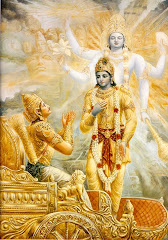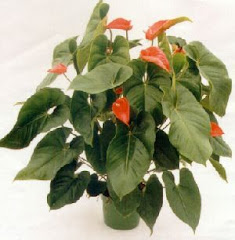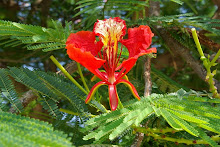
When Booklover enquired if I would like to read and review "Flight of the Hilsa", I was more than glad... and the Hilsa bit had nothing to do with it, I assure you! Do not be misled by the book title. It is not about fishes and there is nothing fishy about it either.
This is advertising professional-turned-author Amit Shankar's debut novel. While Hilsas don't fly, "Flight of the Hilsa" took off on the 28th of October 2010, and in less than 5 weeks, headed for a re-print. Blame it on the pujo season (Durga Pujo and Kali Pujo) and the insatiable affinity of Bengalis towards fish! For the "Bangals" (i.e., Bengali folks whose ancestors trace back to East Bengal, present Bangladesh) the Hilsa or Ilish Maach is the only way to Nirvana. And only they know how to negotiate their way through this tasty mine-field of fish thorns. But then, it is the thorns, which imparts the lessons, not the rose. But I digress.
Hilsa is the metaphor for happiness and satisfaction. What is happiness? How does one achieve it? And more importantly, keep it? How does one measure happiness and satisfaction? Isn't personal satisfaction closely linked with happiness? Does success spawn satisfaction? A successful career, an astronomical paycheck, regular page 3 and media appearances, flaunting branded stuffs - clothes, perfume, shoes, and handbag - does all that lead to the elusive satisfaction? Or is happiness and satisfaction a state of mind for which we have to look deep within our souls? Aakhir satisfaction kis chidiya ka naam hai? Well, read the book to find out.
Published by Vitasta, the book is called "Flight of the Hilsa" because Amit finds inspiration in the fish flowing against the tide to lay eggs in fresh water and then returning to the sea. "It does its job to the best of ability but doesn't crave for 'results'." Well, nothing else can better exemplify Lord Shri Krishna's immortal words from the Bhagavad-Gita (Chapter II-47):
"Karmanye Vadhikaraste Ma Phaleshu Kadachana,
Ma Karma Phala Hetur Bhurmatey Sangostva Akarmani."
Ma Karma Phala Hetur Bhurmatey Sangostva Akarmani."
Meaning: "Thy business is with the action only, never with its fruits; so let not the fruits of action be thy motive, nor be thou to inaction attached." In short: "Do your duty and leave the rest to God."
How simple and how relevant, even today! I think if Bhagavad-Gita is universally renowned as the jewel of India's spiritual wisdom, it is because of Karma Yog. You rarely find books (including spiritual texts and discourses by Gurus) laying emphasis on doing one’s work/duty. That's exactly what Shri Krishna says here. Always do your best without expecting the results and you will be happy. Beautiful words indeed, no?
The Storyline: "Flight of the Hilsa" explores and demystifies the definition of happiness while tracing the story of the protagonist, Avantika Sengupta. This is her journey. Avi to her friends, she is the quintessential bohemian artsy-type complete with purani jeans, Fabindia khadi kurtis, kajal, jootis and a jhola. A graduate of Delhi School of Art she aspires to be a renowned painter. But even her best efforts fail to generate the footfalls in exhibitions or conjure up enough interest among buyers, critics and art connoisseurs... except for 2 people who unfailingly buy them.
A decade of painting and no success frustrates her and nicotine from the navy cut provides some relief... apart from keema-pav and cutting chai. She doesn't eat Hilsa but relishes prawn, which makes her a full-blooded "Ghoti" (i.e., Bengali folks who are originally from West Bengal) I tell you! *wink*
She is dating her Punjabi boyfriend Sunny Khurana, the scion of a business magnate, for 8 years. Khurana Sr. is quite decent while Mrs. Khurana - a socialite - who attends expensive seminars in Switzerland for the upliftment of the poor and the needy, has a very condescending attitude. She reminded me of Kareena Kapoor's fiancé in '3 Idiots' - the one she dumped for Phunsukh Wangdu.
Avantika comes from a dysfunctional family headed by a gallant VSM, AVSM father. Her childhood experiences have made her cynical, volatile... and a non-believer in the institution of marriage. While her best friend cum agony aunt Shweta is married into yet another well-heeled business family - to the owner of the kaddu like lower-half Prashant Khemka, and finds Sunny to be 'perfect husband material'. Avi hates 'Panjoos' - slang for 'Punjabis' - with a vengeance. Bengalis aren't so rabid about 'Punjabis' - they wear them instead! Yes, the kurta worn by Bengali men on special occasions is called 'Panjabi'. It does not figure among Fabindia merchandise of course!
Most of the chapters are named after popular English song titles... perhaps to mirror Avantika's love for music. She is crazy about Bob Dylan, Pink Floyd, Eric Clapton, Led Zepp and Deep Purple. She is addicted to the iPod that helps her to shut out the shorsharaba of the outside world most of the time. But a Bengali - even a 'probashi Bangali' - who does not worship at the altar of the great poet laureate Gurudev Rabindranath Tagore! Not done Avantika! Bengalis - both "Bangals" and "Ghotis" will shake their collective heads and say "Shobbonash" in unison. [Actual: Shorbonash. Meaning: utter disaster] *wink* Especially, since we are in the midst of celebrating the 150th birth anniversary of Tagore. [Note: Probashi Bangali: Bengalis who stay a few grass fields away from Bengal; may be in Delhi, Karnataka, Jharkhand, Orissa, Assam or thousands of miles away in New York, London and Berlin].
As the story rolls along, Avantika goes through a whole gamut of emotions and experiences (with a variety of whales and sharks nattily dressed in business suits) and begins to understand the difference between a good painter and a successful one. Which one does she prefer? What choices does she make? Does she learn to use and abuse people or is it the other way round? How far is she ready to go to realize her dreams? How far are we ready to go to realize our dreams?
It's the choice that we make in our lives which goes on to define our existence. True. But do we make those choices or vice versa? There is truth behind the saying that it's lonely at the top. But it's not just lonely at the top; it can be 'disengaging,' too. What happens when one lacks or loses inspiration? Does one all but retire on the job? After all, one of the first rules of success is to do what you enjoy. It's taken for granted that top executives have found the magic, or surely they would have flamed out somewhere short of the summit. One may put in the time, but not the heart. What happens then?
The conversations between Avi and the design expert Francois Lancolne are quite engaging and insightful. Especially the one about 'falling stars'. What happens if the spark is missing?
Then, one fine day Avi meets the mysterious 'boat guy' - Captain - 20 years her senior, curly haired - more salt than pepper, weather beaten face and bright shining eyes. He becomes her mentor and guide - her Captain - too. Their interactions will hold your attention. For they are simple yet deep, profound yet philosophical and provide a lot of management and life’s lesson succinctly. Their relationship is not difficult to fathom but difficult to put a name to (like that of Sid and Tara Jaiswal in the path breaking 'Dil Chahta Hai').
Perhaps it has shades of Amrita Pritam and Imroze too. A bit.
Captain was there for her when she needed him - during her health scare, when she was broke financially and emotionally, when she lacked confidence... all the time, every single time. Caring and affectionate, providing her the strength and advice, holding her hand and gently steering her through her troubles. He left everything for her without a second thought. Avantika pays him back handsomely of course. She takes him for granted, abuses him with words and deeds and hurts him to his core, immeasurably. Is success blind? Or does it prefer to have a blinkered vision?
But then what goes around comes around, no? The bubble bursts, the dream turns into a nightmare and the ground shifts from beneath her feet. A shocked, shaken, teary eyed and remorseful Avantika turns to her Captain. Will he answer her frantic "O Captain! My Captain!" cries? Will Avantika Sengupta aka Avi triumph over Ms. Sen? Read the book to find out.
Suggestions: Few characters/events could be pruned out of the plot, e.g., Partho Sengupta. The whole Naxalite angle serves no purpose except for eating up space. The shenanigan of Prashant and Shweta's decision was a straight lift from the movie 'Page 3'. It does not add anything to the plot except a sense of déjà vu. Colonel Sengupta and his mistress Simi are painted pitch black. Some shades of gray would have been better. Though Col. Sengupta gets some redemption, only a wee bit, he is too violent for my taste. Avantika comes across as too cynical, too brusque and too volatile. Perhaps even as an opportunist. A selfish one at that! [See! More 'fish', she certainly is a Bengali *wink*]. She reminded me of the legendary Suchitra Sen's character in 'Saat Paake Bandha' (1963), regarded as one of the all-time great films of Bengali cinema. It was re-made in Hindi as 'Kora Kaagaz' (1974) but the original is definitely cinematically superior.
Also the whole hypno-therapy and past life regression bit is underdone. The Queen and the general part piqued my interest and for a moment raised visions of Cleopatra and Julius Caesar. Methinks... Liz Taylor had she not moved on in the afterlife would have definitely sued Avantika for being the pretender! After all, Avi being Avi still goes ahead and does what she did to the Captain in spite of being aware of their past life connection. So, this Kismet Connection bit fails to connect. And the last page reminded me of 'Lagaan'. Not sure why though. Also Avi's 'evolved Bengali genes' seems to have missed the strain of romance. Cholbe Na! Errr... Ratan Tata might prefer 'Cholbe Nano' instead!
My Rating: 3.75/5. A great debut novel! But a little less cynicism, a dash of romanticism, less violence, pruning out of the unnecessary events and characters... would have fully satiated the fiction loving epicurean in me. Enjoy the Hilsa and don't fish for happiness. Be the Hilsa instead.
The book feels good to hold and the printer's devil has not been able to do much damage. The language flows smoothly; exuding a languid charm and pulls you into the narrative while the book jacket cover is vibrant and radiates a cool energy. It makes you want to read the book.
I look forward to Amit's future writings with interest.
Details of the book: Flight of the Hilsa/ Author: Amit Shankar/ Publisher: Vitasta Publishing/ Edition: 2010/ Language: English/ ISBN: 9380828138 / ISBN-13: 9789380828138, 978-9380828138/ Bookbinding: Paperback/ Price: Rs. 245 (Rs. 208 on Flipkart)/ No. of pages: 336.












ok hilsa is fish or happ"y"ness?? also come out f bangla and get more indian woman :P :P... i mean try reading n writing abt sm non-bangla writers too.. not sayin dnt write on the bengali brethren.. only widden ur horizon if i am dare to say so.. ;P... nice read , kinda tired of writing a similar commnt evrytyn.. not tired of reading still tho.... read n write.. its like read a blog n comment.. only u taking it to a level up :P CHEERSS!!!
ReplyDelete@ Sobhit: Hilsa here is the metaphor for happiness. It is also a fish - a much sought after one at that in Bengal, Bangladesh, parts of Orissa, Andhra Pradesh, Tripura and Assam. As well as in Gujarat and Sindh (where it is called palva macchi and palla macchi respectively).
ReplyDeleteI have been writing about sooo many books including that of Ruskin Bond. You never noticed?
And the author of 'Flight of the Hilsa' is not a Bengali. The protagonist is :)
P.S. There is a free book giveaway underway. Head over to this link for details: http://goo.gl/qcn59
3.75 sounds good!
ReplyDeleteEven while reading the description, I was wondering if the story had too many characters. And you mentioned the same thing in the suggestions! :D
@ Preeti: Yep! But otherwise it is quite a good read. This being the author's debut novel there is no benchmark as such :)
ReplyDeleteP.S. There is a free book giveaway underway. Head over to this link for details: http://goo.gl/qcn59
author or protagonist.. bengali flavor toh ahi jati hai yar :P :P... and ruskin bond uncle ka toh likh hi rahe ho aap... was generally sayin.. for bengali touch stays prominent.. no harm in it.. meine toh aise hi bol diya tha yar.. :P
ReplyDeletewill surely check the link out.. thnks
@ Sobhit: :)
ReplyDeleteWell, the Bengali touch added value to the review.. methinks. In my thoughts on Ruskin Bond's books, you won't find the Bengali flavour. So, it depends on the books, events, protagonists, etc :)
sounds interesting! will check it out!
ReplyDelete@ Reema: Great!
ReplyDeleteP.S. Infact I had left a link on your fb page - about the Hilsa Giveaway - but you did not participate :(